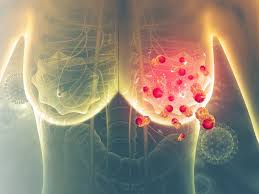03 February 2025 | Monday | News

Picture Courtesy | Public Domain
Roche (SIX: RO, ROG; OTCQX: RHHBY) announced that the U.S. Food and Drug Administration (FDA) has approved a label expansion for the PATHWAY® anti-HER2/neu (4B5) Rabbit Monoclonal Primary Antibody* to identify patients with HR-positive, HER2-ultralow metastatic breast cancer who may be eligible for treatment with ENHERTU®. ENHERTU is a specifically engineered HER2-directed antibody drug conjugate (ADC) discovered by Daiichi Sankyo and being jointly developed and commercialised by Daiichi Sankyo and AstraZeneca.
Until the introduction of HER2-low status in 2022, HER2 status was categorised as either “positive” or “negative” based on the level of HER2 expression. The PATHWAY HER2 (4B5) test has now received approval to identify a new patient population designated as "HER2-ultralow." HER2-ultralow refers to patients who have very low levels of HER2 expression, even lower than the existing HER2-low category.
“One in eight women in the United States will face invasive breast cancer in their lifetime,” said Matt Sause, CEO of Roche Diagnostics. “The rising incidence of metastatic breast cancer, particularly among younger populations, underscores the urgent need for new diagnostic options. The approval of our test for determining HER2-ultralow status offers new hope to patients by providing a possible path to HER2-targeted treatment where none existed before, helping clinicians transform outcomes for many facing this challenging disease.”
HER2 is a receptor protein that helps cancer cells grow quickly. To determine a patient’s HER2 status, pathologists evaluate, or score, the level of HER2 receptor protein expressed in breast cancer tissue samples. The PATHWAY HER2 (4B5) test was used as part of the DESTINY-Breast06 trial, which showed a median progression-free survival of 13.2 months with ENHERTU compared to 8.1 months with the standard of care (chemotherapy) in the overall trial population of patients with HER2-low and HER2-ultralow metastatic breast cancer. An exploratory analysis showed the results were consistent between patients with HER2-low and HER2-ultralow expression.2
The FDA approval of the new HER2-ultralow indication expands on the intended use for Roche’s on-market PATHWAY anti-HER2 (4B5) test, proven in delivering timely, clear, and confident results. The launch further strengthens and differentiates Roche’s comprehensive breast cancer solutions portfolio, aiding patients and providers in making informed decisions to improve outcomes.
© 2026 Biopharma Boardroom. All Rights Reserved.